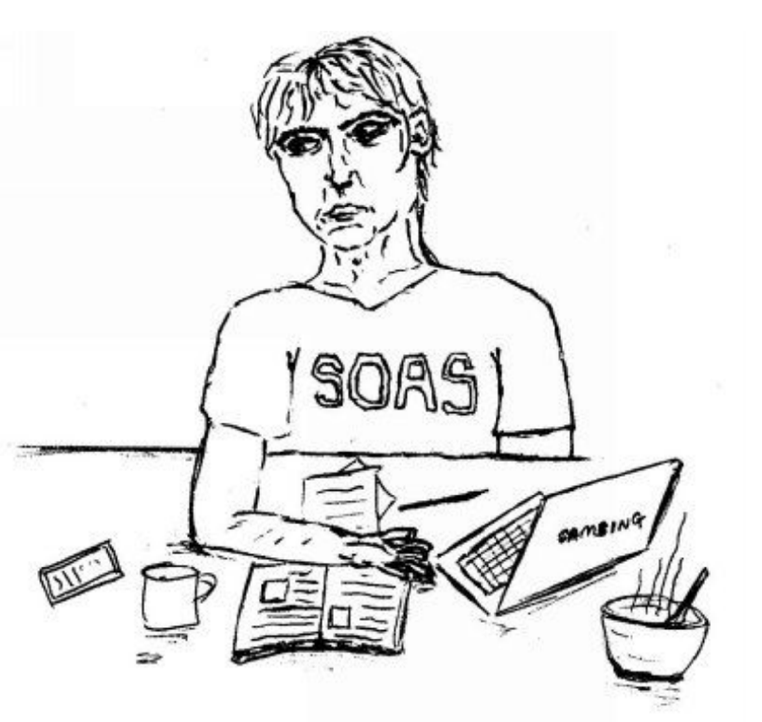By Milhouse Storey, BA Arabic and History
Since the dawn of humanity, great artists, thinkers and even prophets have undertaken periods of isolation, retreating to the Cave for contemplation and creation. The concept has not completely been abandoned, with writers or musicians of today purportedly disappearing into some luxury log cabin or remote lakeside villa, like Jamie in Love Actually. It’s not hard to imagine why: the Cave is sought out for its shelter from distraction, its solitude and its proximity to nature. We know that these aspects are key to a lifestyle which would promote creativity and productivity. But we, going about our daily business, presume such dramatic measures are reserved for those folk who have impassioned purposes already planted within them, as well as the means to go out there and sit in a cabin alone for an extensive period (with a Portuguese maid). They’re already in a position to justify such a retreat, with a track record of successful creation and a need of space for said creation, and they clearly don’t have all the responsibilities stopping us from doing the same.
But this mind-set (I cry out despairingly, tearing at the chains constraining you, my comrades) is symptomatic of a tragic state of modern affairs. I know, I know, that might be a complaint of any aging person throughout history, showing that nothing really changes. But seriously, it has changed this time. What’s occurred over the last 100 years or so has been a poisoning of the brain, a capitalist contagion of production. From industry this has seeped into our homes, our relationships with ourselves, our work, and our acquaintances. And no, I am not a member of the Marxist Society.
Increasingly, we are overcome with a pressure to perform mechanically, measuring success quantifiably, chained to a relentless Multitasking Machine. It is a natural function of ‘consciousness’ to ricochet in the brain between thoughts. It is not, however, natural to force our brains to react to multiple stimuli constantly. Yet we’re convinced that this is necessary in order to fulfill the demanding expectations of our lives, or rather, we’ve been indoctrinated to feel it’s necessary. Yet oftentimes now, we’re not even multitasking for the optimum level of productivity. We’ve inherited this weighty guilt pushing us to take on task after task, but instead of getting product after product, we’re dilly-dallying under the pressure and persistent guilt. We’re still multitasking, but more often than not, it’s a mask over the smirking face of Procrastination – that friend we joke about ten times a day whilst he stabs us in the back twenty times a day. Not only are we imprisoned in the external wheels of production, but we’ve become lost within our own. What’s become an unceasing addiction to multitasking (i.e. multi-distraction methods) has led us into a maze of split intentions and diverted attention. Few of us are close to ourselves, our truths and our unpolluted intentions, running around headless in a directionless, paradoxical world.
Yet we’re terrified of the Cave. Not only are we increasingly socially dependent, and consequently programmed to think ourselves an essential cog in this destructive pandemic reality, but many of us are either dangerously addicted to interaction, or worse, dangerously scared of sacrificing interaction only to fail. The state which we would have to arrive in for the purpose of (nigh on spiritual) Single-Tasking just sounds too drastic, too risky and too far away. But we have more power and control over the direction of our lives than we think. If we stopped multitasking even for a short period each day, allowing our brains and bodies to breathe, we would begin to peel ourselves away from this sticky modern trap. The more we practice this, even if not a full-on escape to the country, the closer we would become to realising and enacting our passions and dreams.
